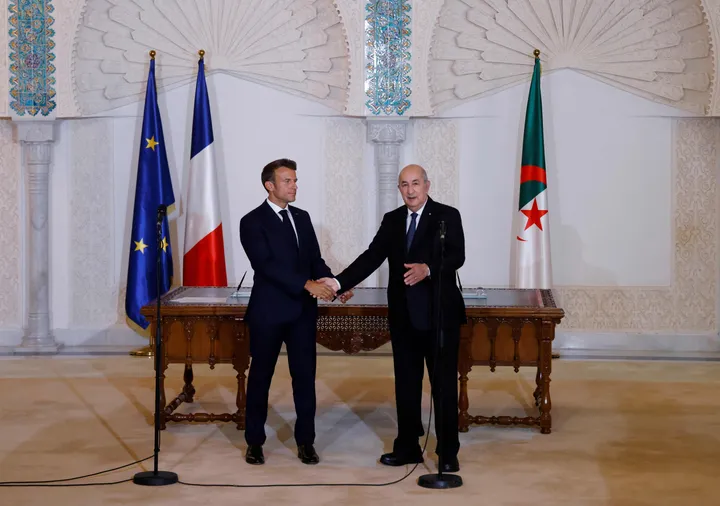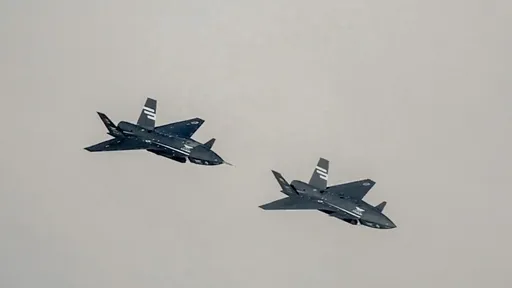Namibia, a small African country, has joined dozens of other states that have asked the International Court of Justice (ICJ) to see if Israel’s actions in Gaza constitute a genocide.
The southern African country went even a step further by calling for sanctions against Israeli companies. But this has put the spotlight on Namibia’s highly regulated and secretive diamond trade with Israel and raised questions about Windhoek’s ability to take any substantial measure to ease the suffering of Palestinians in Gaza.
“A friend to all, and an enemy to none,” is how Namibia describes its foreign relations policy, which was crafted just after the country gained independence from South Africa in 1990.
On some level, Namibia’s relations with Israel have been fraught with distrust as Israel was among the few countries that maintained diplomatic and trade relations with apartheid South Africa.
Despite this history, the two countries have fostered trade ties over the years. And Namibian diamonds are at the heart of it.
A call for justice
In her statement before the ICJ on February 24, Namibia’s justice minister Yvonne Dausab linked Israel’s occupation of Palestinian lands to Namibia’s struggle against apartheid South Africa and the genocide of indigenous Nama and Ovaherero people committed by Germany in the early 20th century.
During the proceedings, Namibia’s legal representative at the ICJ, Phoebe Okowa, suggested punitive measures against Israel for ‘killings, dispossession of lands, and ethnic cleansing’ of Palestinian people.
Okowa called on other countries to cut business ties with Israel to exert pressure on Tel Aviv.
“All states are under an obligation not to recognize, assist, or contribute to the continuation of the unlawful occupation which includes the obligation of the third states not to render aid or assistance in maintaining the illegal situation.”
When Namibia indirectly calls for the boycott of Israeli goods, it calls into question Namibia’s relationship with Israeli businesses that are beneficiaries of Namibia’s single largest export commodity - diamonds.
It appears unlikely Namibia will lead by example in sanctioning these businesses.
What about the diamonds?
Executive Director at Namibia’s Ministry of Mines and Energy, Penda Ithindi, says the nature of Israeli investments in Namibia cannot be segregated by nationality, suggesting that a state-sanctioned boycott or sanctions of Israeli businesses would not be possible under Namibian laws.
“Namibia subscribes to multilateral trade and international cooperation,” Ithindi tells TRT World.
“As a result, Namibia does not align itself with unilateral actions to resolve global geopolitical developments. All investments in the country are treated within the provisions of the investment act and related policies.”
In 2022, Namibia exported $59.82 million worth of goods to Israel, mostly diamonds. Imports from Israel were $3.8 million, mostly comprising diamond cutting and polishing machines.
The positive trade balance is something Namibian officials will be hard-pressed to sacrifice even as they take a very public pro-Palestinian stance, officials say.
Diamonds are Namibia’s single largest export earner.
An inspection of company ownership documents at the Business and Intellectual Property Authority of Namibia (BIPA) reveals the business addresses of many firms involved in Namibia’s diamond trade are registered in Israel.
Tuliameni Kalomoh, former Deputy Minister of Foreign Affairs (now International Relations and Cooperation), warns that Namibia’s statement at the ICJ could bring into question its credibility considering the trade ties between the two countries.
“When you speak from both sides of your mouth you bring your credibility into question. One would think that such a statement like the one delivered by the Minister of Justice at the ICJ would have been crafted or at least been edited by the Ministry of International Relations and Cooperation which is the custodian of Namibia’s foreign relations policy.
“Whenever a country calls for or suggests sanctions like Namibia is doing, it has to consider the wider implications that the sanctions may have, and in this case, they may be more harmful to Namibia than they actually are to Israel,” Kalomoh tells TRT World in an interview.
It is wrong for a Minister of Justice to comment on matters of international diplomacy when there is an authority constitutionally mandated to do so, says Kalomoh.
For Namibia to call for international sanctions on Israel but not have the intention to cut its own trade ties calls into question its sincerity and credibility and whether it can be taken seriously by other countries, says Kalomoh.
Deep links
Lev Leviev, Julius Klein, and Maurice Tempelsmann are internationally renowned diamond magnates with business interests in Namibia’s diamond sector.
Their companies, Lev Leviev Diamonds, Julius Klein Diamonds, and Kaplan Lazar work closely with Namibia Diamond Trading Company (NDTC) and employ thousands of Namibians at their diamond polishing and cutting factories.
They are also what’s known as an NDTC sightholder, which is a Namibian registered company that is contracted to purchase rough diamonds from NDTC for cutting, polishing, and value addition in Namibia.
Lev Leviev and his companies came under international spotlight when a group of Palestinians launched a $34 billion lawsuit, alleging he benefits from Israel’s illegal settlements in the occupied West Bank.
An International Consortium of Investigative Journalists (ICIJ) report highlights the diamond industry's involvement in the occupation of Palestinian territories.
“The lawsuit filed in Washington DC alleges a wide range of crimes under US and international law, including genocide, war crimes and crimes against humanity, conspiracy, money laundering, racketeering, perjury and pillaging”, Ntibinyane Ntibinyane wrote in an article
Besides the diamond trade, a Namibian military company and an Israeli firm FK Generators and Equipment are working together to construct a diesel-run power station called ‘Anixes II’ in the port town of Walvis Bay.
FK Generators was contracted by Namibia’s state-owned electricity company NAMPOWER to develop a national fuel storage facility in a joint venture with a Namibian military company
Calling for sanctions of privately owned Israeli companies in Namibia may be construed as an overreach.
But the military cooperation between Israel and the Namibian government falls within the orbit of Namibia’s own statement at The Hague that says, “all states are under obligation to ensure that companies under their jurisdiction or control do not trade in Israeli goods or with Israeli companies originating from or linked to Israel’s occupation”.
This begs the question when Namibia calls for the boycott and sanction of Israeli companies internationally without demanding the same domestically, should it be taken seriously by others?























